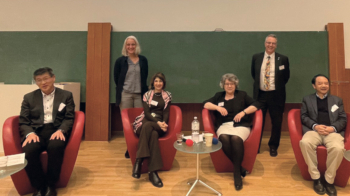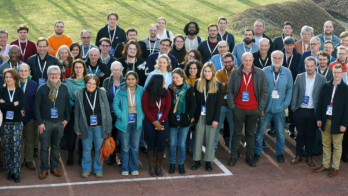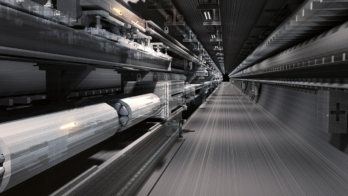If we don’t dare spend money on projects that bring us to the future then we, as Europe, lose a competitive advantage, says Anna Panagopoulou.
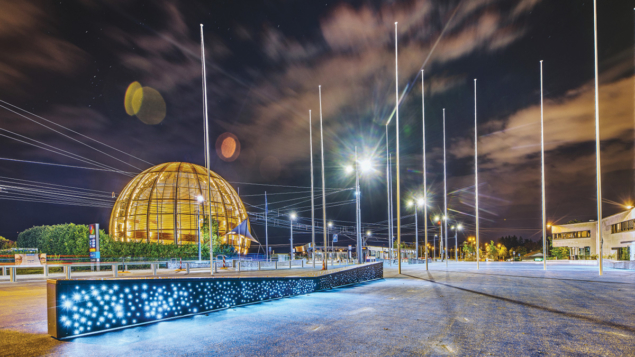
The search for the Higgs boson is the kind of adventure that draws many young people to science, even if they go on to work in more applied areas. I first set out to become a nuclear physicist, and even applied for a position at CERN, before deciding to specialise in electrical engineering and then moving into science policy. Today, my job at the European Commission (EC) is to co-create policies with member states and stakeholders to shape a globally competitive European research and innovation system.
Large research infrastructures (RIs) such as CERN have a key role to play here. Having visited CERN for the first time last year, I was impressed not just by the basic research but also by the services that CERN provides the collaborations, its relationships with industry, and its work in training and educating young people. It is truly an example of what it means to collaborate on an international level, and it helped me understand better the role of RIs in research and innovation.
Innovation is one of three pillars of the EC’s €95.5 billion Horizon Europe programme for the period 2021–2027. The first pillar is basic science, and the second concerns applied research and knowledge diffusion. Much of the programme’s focus is “missions” geared to societal challenges such as soil, climate and cancer, driven by the UN’s 2030 Sustainable Development Goals. So where does a laboratory like CERN fit in? Pillar one is the natural home of particle physics, where there is well established support via European Research Council grants, Marie Skłodowska-Curie fellowships and RI funding. On the other hand, the success of the Horizon Europe missions relies on the knowledge and new technologies generated by the RIs.
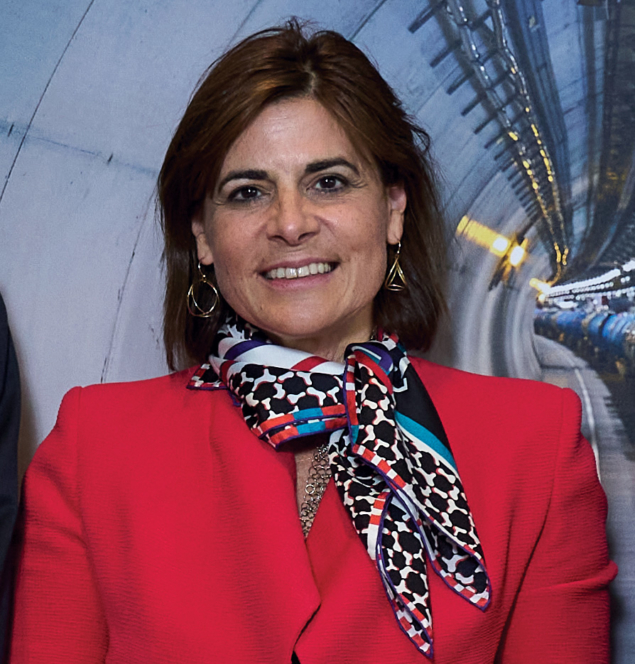
We view the role of RIs as driving knowledge and technology, and ensuring it is transferred in Europe – acting as engines in a local ecosystem involving other laboratories and institutes, hospitals and schools, attracting the best people and generating new labour forces. COVID-19 is a huge social challenge that we also managed to address using basic research, RIs and opening access to data. This is a clear socioeconomic impact of current research and also data collected in the past.
Open science is a backbone of Horizon Europe, and an area where particle physics and CERN in particular are well advanced. I chair the governance board of the European Open Science Cloud, a multi-disciplinary environment where researchers can publish, find and re-use data, tools and services, in which CERN has a long-standing involvement.
Indeed, the EC has established a very strong collaboration with CERN across several areas. Recently we have been meeting to discuss the proposed Future Circular Collider (FCC). The FCC is worthwhile not just to be discussed but supported, and we are already doing so via significant projects. We are now discussing possibilities in Horizon Europe to support more technological aspects, but clearly EU money is not enough. We need commitment from member states, so there needs to be a political decision. And to achieve that we need a very good business plan that turns the long-term FCC vision into clearly defined short-term goals and demonstrates its stability and sustainability.
Societal impact
Long-term projects are not new to the EC: we have ITER, for example, while even the neutrality targets for the green-deal and climate missions are for 2050. The key is to demonstrate their relevance. There is sometimes a perception that people doing basic research are closed in their bubble and don’t realise what’s going on in the “real” world. The space programme has managed to demonstrate over the years that there are sufficient applications providing value beyond its core purpose. Nowadays, with issues of defence, security and connectivity rising up political agendas, researchers can always bring to the table that their work can help society address its needs. For big RIs such as the FCC we need to demonstrate first: what is the added value, even if it’s not available today? Why is it important for Europe? And what is the business plan? The FCC is not a typical project. To attract and convince politicians and finance ministers of its merits, it has to be presented in terms of its uniqueness.
The FCC brings to mind the Moon landings
The FCC brings to mind the Moon landings. Contrary to popular depictions, this was a long-term project that built on decades of competitive research from different countries. Yes, it was a period during the Cold War, but it was also the basis of fruitful collaboration. If we don’t dare to spend money on projects that bring us to the future then we lose, as Europe, a competitive advantage.



